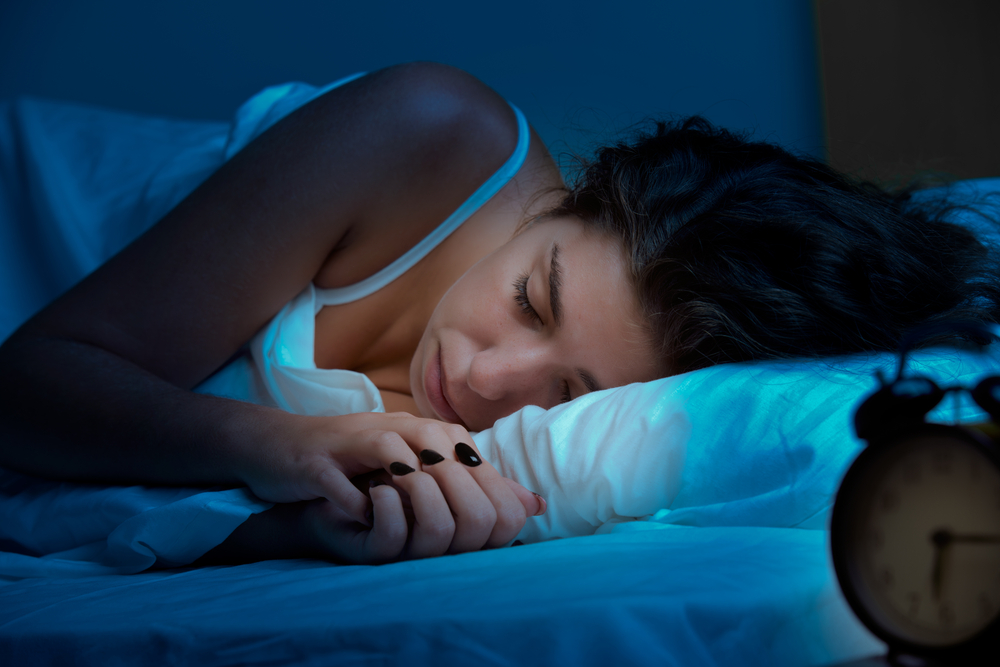Sleep hygiene is a behavioral and environmental practice[1] developed initially in the 1970s to focus on insomnia and depression. It considers elements of routine including diet and fluid, lighting, activity engagement, and sleep environment generally to support inducing of higher quality sleep.
Sleep deficiency is a common public health problem in the United States with people in all age groups report not getting enough sleep. As part of a health survey for the Centres for Disease Control and Prevention, about 7–19 percent of adults in the United States reported not getting enough rest or sleep every day with nearly 40 percent of adults report falling asleep during the day without meaning to at least once a month. Also, an estimated 50 to 70 million Americans have chronic (ongoing) sleep disorders.[2]
What we need to consider therefore in the first instance is why sleep is important.
The American Sleep Association state that ‘sleep deprivation can lead to many consequences. Without an adequate amount of sleep, our minds and bodies are unable to perform at their peak.’[3] They go on to confirm that there are ‘several potentially bad outcomes that are associated with inadequate sleep. Sleep influences the immune system, memory consolidation, attention, hunger, mood, response time, and many other body functions’.
The impact of sleep can affect children and adults in different ways, simply due to their differing lifestyles and demands but essential elements or reasons are much the same.
For children and adults, a lack of sleep (recommendations range from 14 – 8 hours depending on age)[4] can impact on education, mental health, physical health, and play/leisure
A good night’s sleep is essential for learning new info and remembering it later. This is due to a number of factors:
Enhanced Attention:
If you wake up feeling well-rested, you’ll have greater mental clarity and focus, and you’ll be able to respond faster to questions or stimuli.
Learning Becomes Easier:
If you’re well-rested, you’ll be able to master a new task (like learning how to play a song on the piano) more effectively than if you were sleep-deprived; this is known as procedural memory. During sleep, you also sharpen your declarative memory—your knowledge of complex, fact-based information.
Better Problem-Solving Skills:
After a good night’s sleep, you are more likely to wake up with a more creative idea for a project or how to solve a problem.
Improved Recall:
A sound night’s sleep can help you better remember what you learned the day and speed up your thinking processes
Research even suggests that students at later-starting schools report later rise times, more total sleep on school nights, less daytime sleepiness, less tardiness, fewer attention/concentration difficulties, and better academic performance compared with middle school students at earlier-starting schools.[5]
Sleep and physical health are known to have a bidirectional relationship, where poor sleep is linked to physical health problems but also may be caused by physical health problems. Diabetes, heart function, obesity, and muscle development are all known to be affected by rest through sleep. It is during periods of sleep that the body effectively resets and regulates heart rate and blood pressure.
The same bi-directional relationship can be leveled at sleep and mental health; Take, for example, depression: while a depressed young person may sleep less well and /or have altered recall of sleep duration and quality, they may also be disposed to develop depression because of sleep deprivation. There is a known link between sleep loss and increased suicidality in adolescents which is clearly important to be aware of.
Dr. Sally Hobson, Specialty Community Paediatrician states that Clinicians who are trained to work in mental health settings are well placed to assess and consider sleep problems as part of their formulation. In addition to this systemic thinking, she suggests that any clinician working with children and young people in a physical or mental health/developmental setting should have a basic knowledge of the importance of sleep, of how to take a basic focussed sleep history, talk with
families and young people about the importance of sleep, give basic advice on sleep hygiene and behavioural interventions for sleep and most importantly to support a family and young person through making any necessary changes.[1]
Indeed this view is reinforced by the American Association of Occupational Therapists who state that ‘Occupational therapists use knowledge of sleep physiology, sleep disorders, and evidence-based sleep promotion practices to evaluate and address the ramifications of sleep insufficiency or sleep disorders on occupational performance and participation. Sleep problems are addressed with all clients and framed from the perspective of health maintenance and health promotion.’[2]
Sleep it is asserted should, therefore, be considered a purposeful, if not meaningful occupation which is considered as part of every holistic and client-centered assessment. Sleep hygiene specifically therefore requires knowledge and awareness of elements that improve such behaviors or patterns such as research regarding the impact of bathing on sleep such as that conducted by the University of Texas, Austin[3] where the links are highlighted.
Other factors then follow, linked to sleep and cognition including falls, occupational deprivation and social isolation. It is critical that we use therapeutic skills to ensure lives are enriched and potential maximized even if that means considering occupations or activities that have slipped somewhat off the assessment radar.
[1] Hobson, S. (2019) Sleep and Mental health. Available at https://www.acamh.org/blog/sleep-mental-health/ Accessed: 1/10/19
[2] Occupational Therapy’s role in sleep; Available at https://www.aota.org/about-occupational-therapy/professionals/hw/sleep.aspx Accessed 07/10/2019
[3] The University of Texas at Austin. “Take a bath 90 minutes before bedtime to get better sleep.” ScienceDaily. ScienceDaily, 19 July 2019. Available at www.sciencedaily.com/releases/2019/07/190719173554.htm Accessed: 23/09/19 : Originally published by Shahab Haghayegh, Sepideh Khoshnevis, Michael H. Smolensky, Kenneth R. Diller, Richard J. Castriotta. Before-bedtime passive body heating by a warm shower or bath to improve sleep: A systematic review and meta-analysis. Sleep Medicine Reviews, 2019; 46: 124 DOI: 10.1016/j.smrv.2019.04.008
[4] Irish, Leah A.; Kline, Christopher E; Gunn, Heather E; Buysse, Daniel J; Hall, Martica H (October 2014). “The role of sleep hygiene in promoting public health: A review of empirical evidence”. Sleep Medicine Reviews. 22: 23–36.
[5] https://www.nhlbi.nih.gov/health-topics/sleep-deprivation-and-deficiency Accessed 07/10/2019
[6] https://www.sleepassociation.org/blog-post/why-is-sleep-important/ Accessed 07/10/2019
[7] https://www.sleep.org/articles/how-much-sleep-children-need/ Accessed 07/10/2019
[8] Hobson, S. (2019) Sleep and Mental health. Available at https://www.acamh.org/blog/sleep-mental-health/ Accessed: 1/10/19




